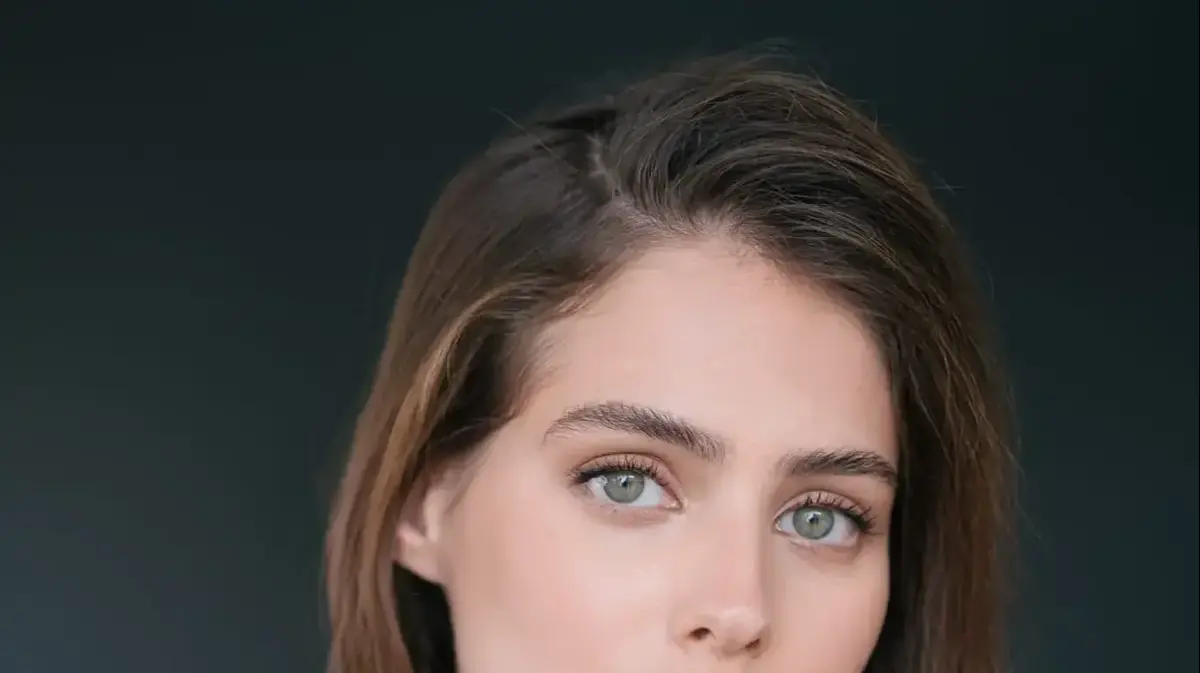Icon: enlarge
Actor Benjamin Radjaipour in "Future Three"
Photo: Edition Salzgeber
A question and a misunderstanding are what drives the film "Future Three".
Amon (Eidin Jalali), who lives in a housing project for refugees and believes the insecure Parvis (Benjamin Radjaipour) to be another newcomer from Iran, sits on the misunderstanding.
Amon's sister Banafshe (Banafshe Hourmazdi), on the other hand, has long since understood: The good-looking boy with the bleached hair and earrings is not new in Germany, he works here.
And indeed: Parvis, who has to do social hours in the home, was born in Germany and leads a rather carefree life between raves and grindr dates.
Carefree except for the everyday racism: In the first scene a guy looks deep into his eyes after making out: "Where are you from?"
The three young people of Iranian origin in the center of “Futur Drei”, the debut film by the 26-year-old Faraz Shariat, could hardly be more different.
Banafshe fled the regime in Iran, feels at home in Germany, but is still acutely threatened with deportation.
Her brother Amon strangers more, hardly dares to speak a sentence in German.
"It's hard enough to be yourself, and then in German too ..." he confesses to Parvis once.
This in turn has the privilege of a German passport, but hardly knows his parents' country, and his Farsi is quite rusty, as the others soon notice.
The film, which premiered at this year's Berlinale and is now starting in cinemas, tells of the alliance of these three people in a form that is as torn as its characters.
Home video excerpts from Parvis childhood alternate with sober scenes in the residential project and unrestrained stylized sequences in which the three new friends stage themselves.
You drink your way through the Lower Saxony province, take a seat in the restaurant for a speech, and Banafshe actively helps so that the romantic tension between Parvis and Amon gradually discharges.
The aesthetics in these scenes are reminiscent of music videos.
They are also part of the business of the film collective Jünglinge, which Shariat founded together with Paulina Lorenz and Raquel Molt.
The three of them met at the University of Hildesheim and are now trying to translate postcolonial and queer theory into film activist practice.
Fortunately, the academic superstructure only seldom slows the film's forward thrust, most likely in those scenes in which the German majority society takes over the direction with all the harshness of its power of definition: A sex date is surprised that Parvis, despite his origins, is at all is not so hairy, a project employee (guest appearance Jürgen Vogel) uses Banafshes precarious status to propose a protective marriage to her.
But these striking scenes are also a reality in this country.
Sometimes, Parvis once confesses to Banafshe, he feels like a living memory of his parents' pain.
Parvis comes closer to this pain through contact with two elderly Iranians.
The two are played by the real parents of the director Shariat.
In 2020, post-migrant cinema will be more present in Germany than ever before;
with films from the perspective of those who for many still do not belong.
In “Berlin Alexanderplatz”, the Afghan German Burhan Qurbani shipped a great German novel to today's Berlin, focusing on a refugee from Guinea-Bissau.
In "Exil", Visar Morina, who was born in Kosovo, told of the social paranoia that afflicts a German with a so-called migration background even when he feels he has arrived in the middle class.
"Futur Drei" is now neither a literary epic nor a psychogram, but subversive popcorn cinema, including Nena and Sailor Moon on the soundtrack.
A volume with political essays and production notes will be published under the title “I See You” at the start of the film “Future Three”.
The sentence “I See You” is first heard when Parvis is sitting in the bathtub after a night of partying and Amon sees through the hole that he has blown into the cloud of foam on his hands.
"Futur Drei" blows a peephole into the sometimes impenetrable white foam wall of the German film - and focuses on living environments that otherwise only appear in extremely weak resolution.
Icon: The mirror








/cloudfront-eu-central-1.images.arcpublishing.com/prisa/N7JWCVQ7PVDBPM2ZRCLYQ3N3QA.jpg)



/cloudfront-eu-central-1.images.arcpublishing.com/prisa/S7ERVSCT4FUVX6R7TUVBDNTH5Y.jpg)


